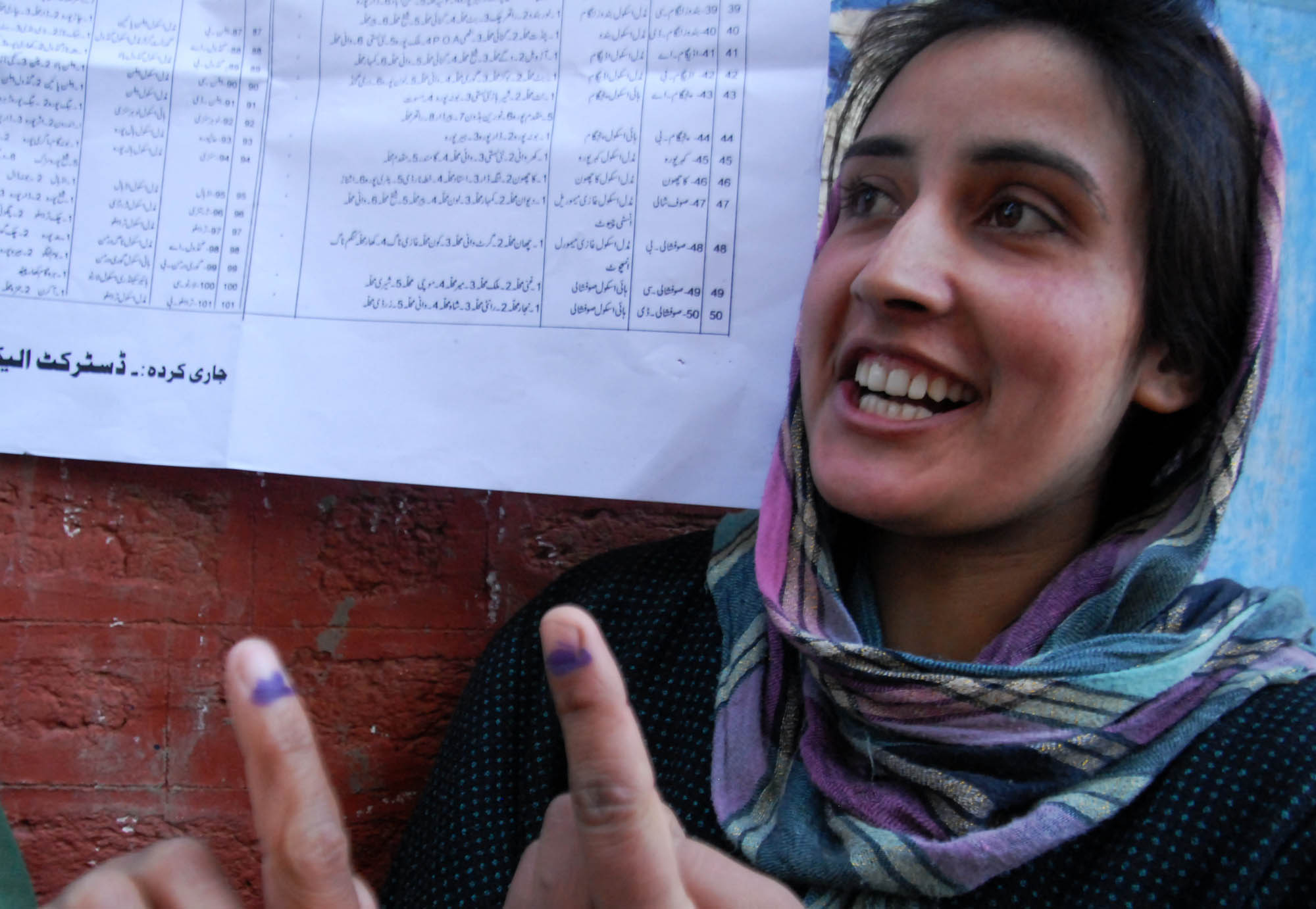says. But the most dominating of them has been Jama’at. The surge in religious activities has driven the villagers away from local politics.
Last time, when the local MLA, Iftikhar Ansari, tried to address a public rally, he was booed and people shouted pro-freedom slogans. Later, when some elders went to ask him to install a water pump, he reportedly told them that the village doesn’t need a water pump since its inhabitants were asking for Azadi! A casual walk in the lanes and bylanes of Palhalan is a stark reminder that the village has remained stagnant and trapped in its own history. The roads are full of potholes and the water has clogged them. There are hardly any good schools. A few schools that have come up don’t provide quality education. The teacher-student ratio is appalling.
Despite this, most young in the village are educated and their thirst for knowledge had driven them to far off places. Manzoor Ahmad Bhat did his M.Sc. in Chemistry from Kashmir University. As you enter Palhalan, a small Photostat shop surrounded by small wooden carts owned by Bhat, who had got a job in a private construction company based in Delhi, greets you.
I was asked to produce a verification certificate which the police refused. Then I started this shop. We have never seen the benefits of successive governments. If we are Indian citizens, then why don’t we get a simple verification certificate from police? I am a stone pelter because this is only way we can give vent to our anger. If I die, I won’t repent. It will be the death of martyr,” he says.
Most Palhalan youth echo the concerns of Bhat. A high literacy rate has not translated into employment for them and self-employment is the only way out. Fayaz Ahmad Wagay lost his brother in the 2010 unrest. “I wanted to leave to work outside India but I was denied passport. I had talked to a friend in Gulf but they wrote an adverse report against me. They said my brother was a stone pelter and he died in militancy related incident. He was not a militant.”
This may offer an explanation for the huge discontent prevailing in Palhalan against the state. When the local body elections happened last year, no one opposed it. In fact, the candidates did door-to-door campaigning. This was the first time in the history of insurgency in Kashmir that something of this sort happened in Palhalan. After the election, even though the representatives were not given adequate powers, Palhalan was the only places where Sarpanches and Panchs had been able to translate the promised development into action to some extent.

The political violence coupled with the discrimination meted out to people on the basis of their political affiliations has adversely affected the development in the village. The elected representatives seldom visit the area. They come only when the election time is around. In one of the recruitment rallies for J&K police, the young men from Palhalan were asked to pack their bags and leave, “When we asked them for reason, they said they won’t take people from Palhalan,” says Abid Ahmad Shalla, a Palhalan resident.
“We know we have to be self-reliant and self-sufficient. That is the reason we survived when our electricity was disconnected and water supply snapped. It is our self-reliance that we survived for a long time on our own. Palhalan doesn’t need anything from outside. We can survive on our own for more than nine months,” he added.

When asked about the discrimination meted out to the residents, Palhalan MLA, Iftikhar Ansari, said every village and town is equal for a public representative. “I don’t discriminate on the basis of ideology. These are my people. They have voted me to power. They might not agree with me ideologically but they are my constituents. The problem with them is that they don’t listen.”
There is no doubt that the mass resignation by the Panchayat members in Palhalan and elsewhere would have a ripple effect on the district and block development council elections. Abdul Khazir Mir, 45, a resident of Kreeri, Baramulla, says he had thought the elections would empower them to carry out development in their areas. “That was the primary reason why we fought these elections. Neither was I given the powers nor was I able to do any kind of development,” he says.
Mir is one of the Panchayat members who resigned last week after the deputy Sarpanch Teli’s killing. He says he is so frightened that he doesn’t sleep at his home. “I prefer to sleep somewhere else because I can’t risk the safety of my children. If we don’t resign, they would kill us. There is no guarantee that even after tendering our resignation, they would let us live. We live in the atmosphere of uncertainty.”
But there are many hopefuls in north Kashmir who say they won’t resign. Most of them are affiliated with the ruling National Conference. In Baramulla’s Heevan, only two Panchs have resigned. —















